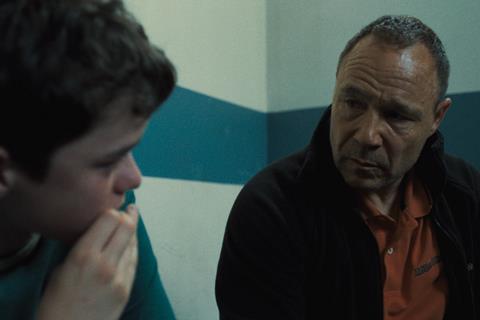
Netflix is making its drama Adolescence available to secondary school students through charities Into Film+ and Tender.
The four-part series will be available on Into Film+ – a streaming service designed specifically for schools and helping the charity’s aim of putting film at the centre of young people’s educational and personal development.
Healthy relationships charity Tender will create guides and resources for schools, parents and carers to help navigate conversations around the series, which tackles difficult themes and topics.
Adolescence, co-produced by Warp Films, Matriarch Productions and Plan B Entertainment, tells the story of a 13-year-old boy who is charged with the murder of his female classmate. Since its launch, it has generated a national discussion on misogyny and toxic masculinity.
In its first week on Netflix, the first episode secured a seven-day consolidated audience of 7 million, making it one of Netflix UK’s biggest shows and the first streamer programme to top the UK’s weekly TV ratings.
Anne Mensah, vice-president of UK content at Netflix, said: “Adolescence has captured the national mood, sparking important conversations and helping articulate the pressures young people and parents face in today’s society. We’re incredibly proud of the impact the show has made, and are delighted to be able to offer it to all schools across the UK through Into Film+. As part of this, healthy relationships charity Tender will create resources for teachers and parents to help them navigate the important topics the show explores.”
Netflix’s partnership with Tender and Into Film coincides with Prime Minister Keir Starmer’s recent roundtable meeting with charity leaders to discuss issues raised in Adolescence.
This meeting included representatives from Tender, NSPCC and The Children’s Society, as well as the drama’s co-creator and writer Jack Thorne and Warp Films’ chief creative officer and the show’s exec producer Emily Feller, and series producer Jo Johnson.
Starmer said that watching the programme with his teenage children “hit hard” and that making it available to secondary schools is an important initiative to encourage as many students as possible to watch the show.
“As I see from my own children, openly talking about changes in how they communicate, the content they’re seeing, and exploring the conversations they’re having with their peers is vital if we are to properly support them in navigating contemporary challenges, and deal with malign influences,” he added.
“This isn’t a challenge politicians can simply legislate for. Believe me, if I could pull a lever to solve it, I would. Only by listening and learning from the experiences of young people and charities can we tackle the issues this groundbreaking show raises.”
Thorne said the show was designed to instigate a conversation and ask how the growing crisis surrounding boys’ misogynistic attitudes towards women can be stopped.
“To have the opportunity to take this into schools is beyond our expectations. We hope it’ll lead to teachers talking to the students, but what we really hope is it’ll lead to students talking amongst themselves,” he said.






![The Brightest SunScreen[Courtesy HKIFF]](https://d1nslcd7m2225b.cloudfront.net/Pictures/274x183/3/5/0/1448350_thebrightestsunscreencourtesyhkiff_312678.jpg)


















No comments yet